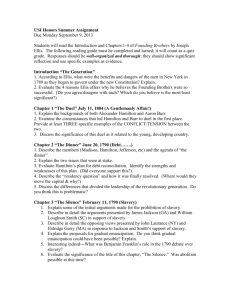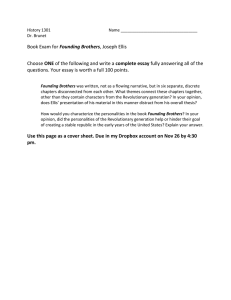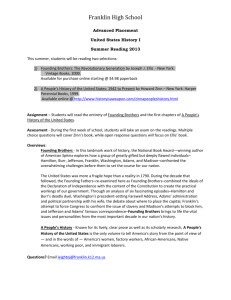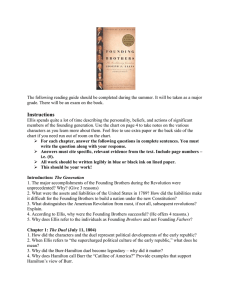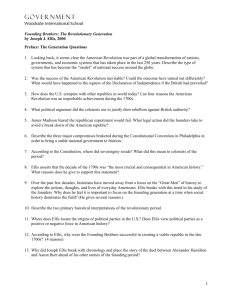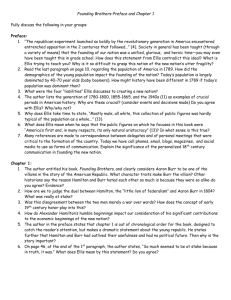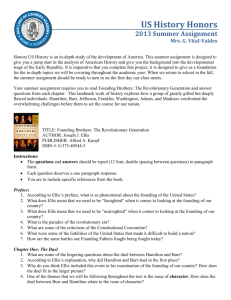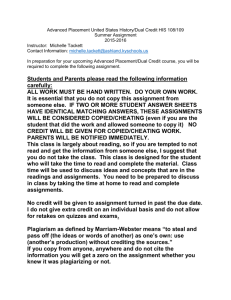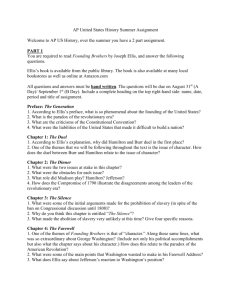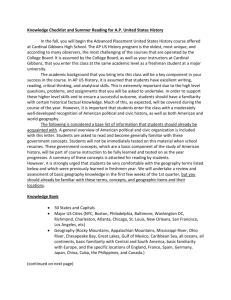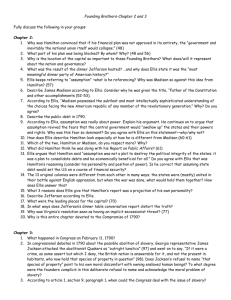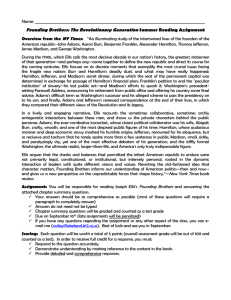US I Honors/Advanced Placement 2015
advertisement
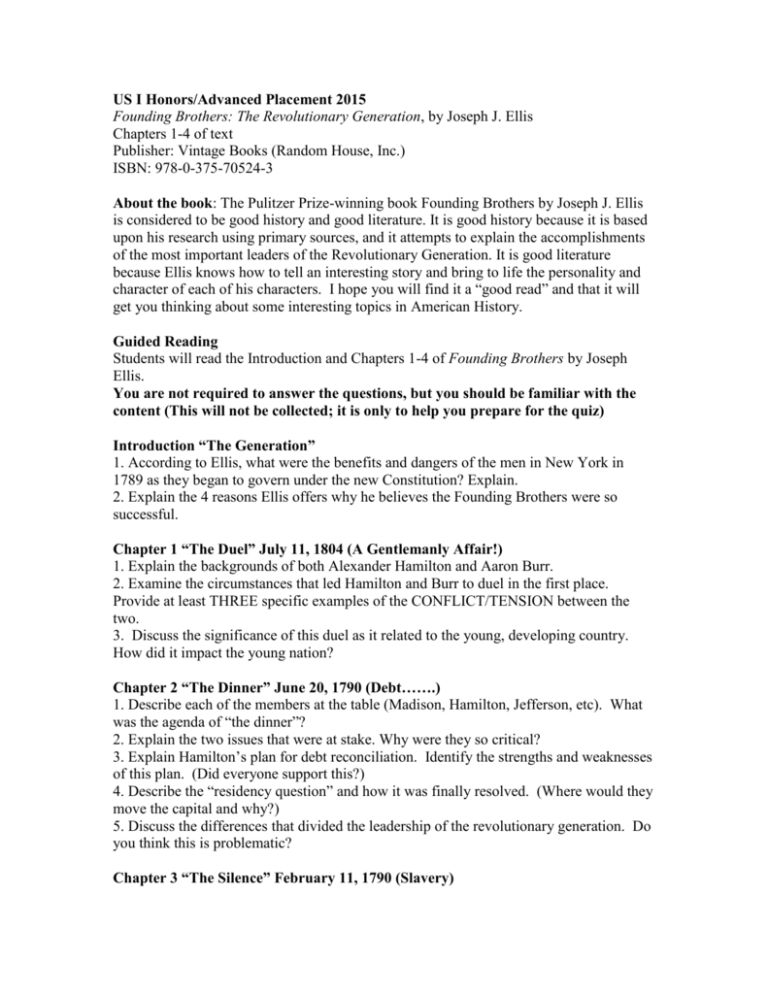
US I Honors/Advanced Placement 2015 Founding Brothers: The Revolutionary Generation, by Joseph J. Ellis Chapters 1-4 of text Publisher: Vintage Books (Random House, Inc.) ISBN: 978-0-375-70524-3 About the book: The Pulitzer Prize-winning book Founding Brothers by Joseph J. Ellis is considered to be good history and good literature. It is good history because it is based upon his research using primary sources, and it attempts to explain the accomplishments of the most important leaders of the Revolutionary Generation. It is good literature because Ellis knows how to tell an interesting story and bring to life the personality and character of each of his characters. I hope you will find it a “good read” and that it will get you thinking about some interesting topics in American History. Guided Reading Students will read the Introduction and Chapters 1-4 of Founding Brothers by Joseph Ellis. You are not required to answer the questions, but you should be familiar with the content (This will not be collected; it is only to help you prepare for the quiz) Introduction “The Generation” 1. According to Ellis, what were the benefits and dangers of the men in New York in 1789 as they began to govern under the new Constitution? Explain. 2. Explain the 4 reasons Ellis offers why he believes the Founding Brothers were so successful. Chapter 1 “The Duel” July 11, 1804 (A Gentlemanly Affair!) 1. Explain the backgrounds of both Alexander Hamilton and Aaron Burr. 2. Examine the circumstances that led Hamilton and Burr to duel in the first place. Provide at least THREE specific examples of the CONFLICT/TENSION between the two. 3. Discuss the significance of this duel as it related to the young, developing country. How did it impact the young nation? Chapter 2 “The Dinner” June 20, 1790 (Debt…….) 1. Describe each of the members at the table (Madison, Hamilton, Jefferson, etc). What was the agenda of “the dinner”? 2. Explain the two issues that were at stake. Why were they so critical? 3. Explain Hamilton’s plan for debt reconciliation. Identify the strengths and weaknesses of this plan. (Did everyone support this?) 4. Describe the “residency question” and how it was finally resolved. (Where would they move the capital and why?) 5. Discuss the differences that divided the leadership of the revolutionary generation. Do you think this is problematic? Chapter 3 “The Silence” February 11, 1790 (Slavery) 1. Explain some of the initial arguments made for the prohibition of slavery. 2. Describe in detail the arguments presented by James Jackson (GA) and William Loughton Smith (SC) in support of slavery. 3. Describe in detail the opposing views presented by John Laurance (NY) and Eldridge Gerry (MA) in response to Jackson and Smith’s support of slavery. 4. Explain the proposals for gradual emancipation. Do you think gradual emancipation could have been possible? Explain. 5. Interesting indeed---What was Benjamin Franklin’s role in the 1790 debate over slavery? 6. Evaluate the significance of the title of this chapter, “The Silence.” What did the Founding Fathers ultimately decide about the issue of slavery? Why? Chapter 4 “The Farewell” (Our First President) 1. What was printed in the Republican newspaper, the Aurora, about Washington? Explain. 2. Assess Washington’s decision to retire. Was this a wise choice? (Consider private, public, and political concerns in your response). 3. Evaluate Washington’s Farewell Address. What was the purpose of his address and its main themes? 4. One of the themes of Founding Brothers is that of “character”. According to Ellis, what was so extraordinary about George Washington? Include not only his political accomplishments, but also his character. QUIZ Students should be prepared to take a reading quiz on Founding Brothers during the first week of school that includes multiple choice and/or short response. The quiz questions will be based on the reading questions, as well as your overall understanding of the text. This will be an independent assessment and the use of notes will not be permitted. OPTIONAL BONUS: (5 points) Take a picture of yourself reading the book this summer (such as at the beach, in a hammock, at a historical site) and email the picture to me at lydia.laba@wmtps.org. This will be part of a slideshow during the first few days of school.
